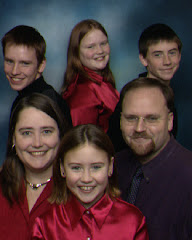This story is from Dr. Albert Mohler's blog...
Arno was inseparable from Mr. Penguin. The little Haitian boy was almost three years old, and the plush penguin with the word "love" inscribed upon it was his most treasured object. The orphan and his penguin were always seen together.
The boy had been given the penguin just after his birth. A Dutch couple was in the process of adopting him almost from the start of his life -- they had been matched to him when he was only two months old. The penguin represented a promise.
The process of adoption took two years -- the length of time considered adequate to determine that no living relatives might claim him. According to official estimates, there were over 50,000 parentless orphans in Haiti before the earthquake came and orphaned many thousands more.
Richard and Rowena Pet were the young Dutch couple who wanted so badly to be Arno's mother and father. They had struggled with infertility for years before deciding to adopt. As they awaited the adoption of Arno, Rowena became pregnant. Last August she gave birth to Jim, who was left in the care of relatives as Richard and Rowena flew to Haiti in January to claim Arno and complete the adoption process.
The story of Arno's adoption is movingly told by reporter David Charter of The Times [London]. As he reported, "Arno was shy at first but within 30 minutes of meeting his adoptive parents he reached for Rowena’s hand and took the Dutch couple on a tour of the orphanage in Port-au-Prince where he had spent most of his short life. He began to call them Mummy and Daddy."
Richard had shared their joy with a friend in an e-mail:
“We got to the orphanage feeling a bit strange. We went around a corner and immediately saw Arno walking towards us. He was OK until he was about half a meter away, but then he panicked. The woman from the orphanage helped out and half an hour later he took Rowena’s hand for the first time. I’m sorry but I can’t help crying at the moment as I type this. Arno has been showing us everything in the orphanage. He showed us an old car they have for the children to play on. He was holding a birthday card we sent for his second birthday.”
According to Charter, adoptive parents often stay at the Hotel Villa Therese in the Pétionville district of Port-au-Prince. That is where Richard and Rowena took Arno. That is where they were when the earthquake came. And that is where they died together.
David Charter tells the story, with comments by Chris Spaansen, the friend to whom Richard had sent the e-mail:
Dutch TV cameras were on hand during the frantic search by an international rescue team with members from the Netherlands, Britain and Canada. . . . Lying there amid the rubble was the unmistakable blue and yellow toy bird, Mr Penguin, marked with the word “Love”, that went everywhere with Arno. “That toy helped them to make their first contact with the little boy. It had a really special place in the family. It was a very emotional moment for all of us,” Spaansen says.
Then this:
What the cameras did not show were the three bodies, found intertwined together, as if Rowena and Richard had tried to put protective arms around Arno as the masonry began to fall. The disaster cruelly destroyed the new family, creating its own orphan back in the Netherlands. Jim, just five months old, will be brought up by Rowena’s sister, who already has her own three-year-old boy.
The bodies of Richard and Rowena and Arno Pet were taken to the Netherlands together, just as they had been found together in the rubble of the Hotel Villa Therese. They had been a family for a few hours, but a family all the same. Arno had a tragically short life, but he ended that life in the arms of a mother and a father.
Who can read this account without heartbreak . . . and a heart warmed? Is there a heart so cold that it does not feel the pathos of this report, and sense the sentiment of this family's tragedy? At the same time, this is not a tragedy in the classic sense. The love of Richard and Rowena and Arno Pet transcends tragedy. That is why The Times published this report, and why it stays with you so long after you read it.
























No comments:
Post a Comment